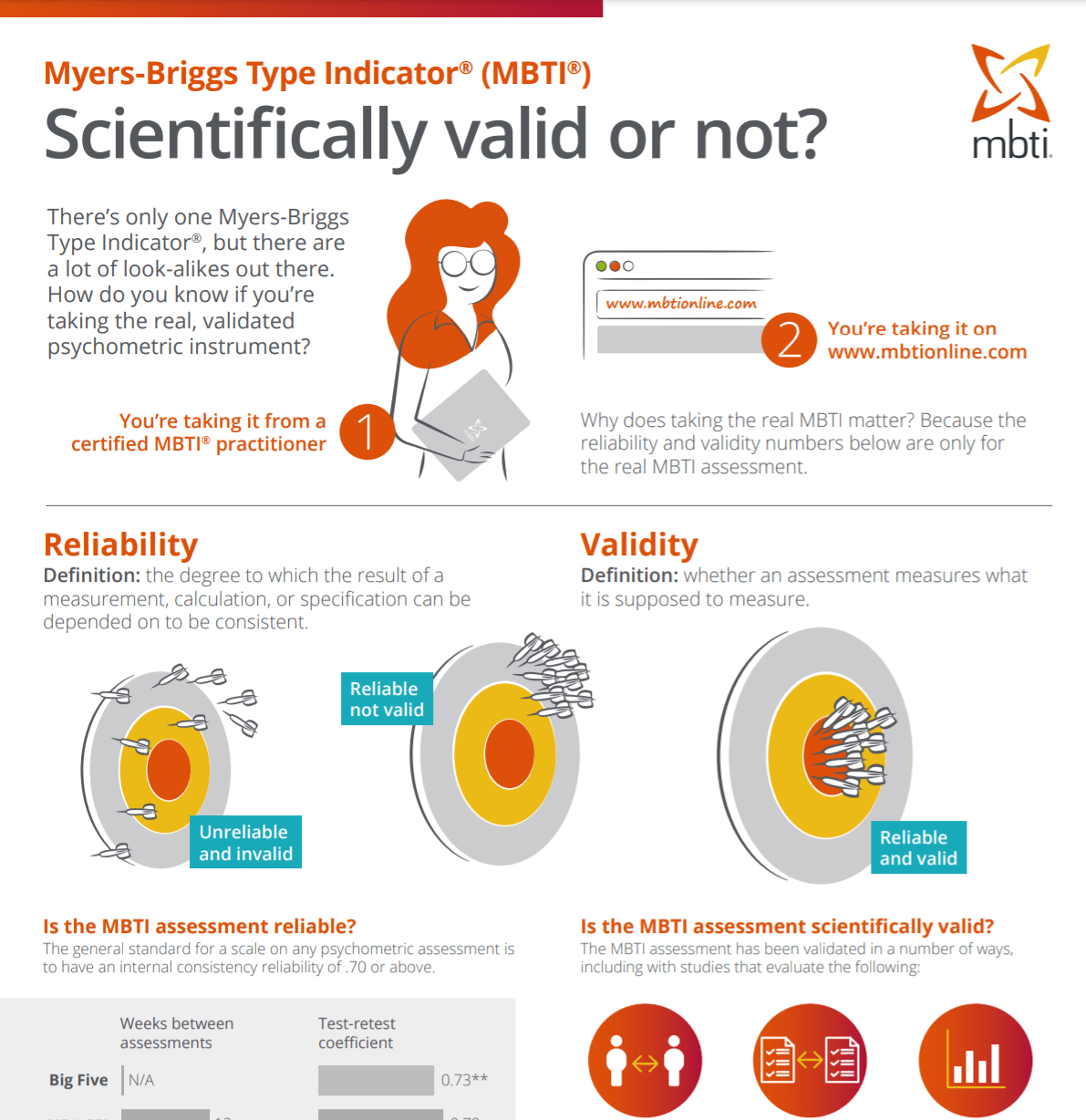How to address criticism of the Myers-Briggs® Type Indicator—resources, videos, and more
Kevin Wood, Writer
Nothing is beyond criticism, the MBTI® assessment included. But what do you do when someone throws another sensationalist MBTI headline in your face?
Here are some things you might find useful to read, do, or download.
If you do nothing else, check out Dr. Aqualus Gordon’s Why the Myers-Briggs and Jung's Types Aren't BS video below. His confidence and common sense, as well as his clear arguments, will inspire anyone who needs it.
Run a sense check
Read the article calmly. Then ask: does it match my experience as a certified practitioner of this assessment?
If the author mentions how useless Myers-Briggs is for determining career performance, for example, you know they haven’t done their homework. If the author says MBTI type is limiting because people don’t act according to their four letters all of the time, again they’ve got it wrong. Neither of these applications are claimed by the MBTI assessment.
Lastly, look out for the obvious (wilful?) mis-readings and selective interpretations. Sometimes, authors will write negative pieces about the MBTI tool just for clicks.
Look out for the echo
Decide whether an article says anything. Some articles do nothing more than report someone else’s words.
At times, it can feel there are multiple criticisms from different sources. But many times, larger publications are just picking up the story from smaller ones.
Find your allies
Need some fresh input to help you clarify or express your ideas around the MBTI assessment?
Try following a high-profile MBTI user, and keep track of their articles and videos. They often present strong arguments from an area of expertise that’s different to yours. And they can be inspiring, too.
Patrick Lencioni is an MBTI supporter—see our recent post for a positivity boost.
Dr. Aqualus Gordon offers great arguments in his comprehensive counter to anti-MBTI hype article in Psychology Today. And remember to make the time to watch Why the Myers-Briggs and Jung's Types Aren't BS video too.
Fight fire with water
Or foam. Or bananas. But not fire—at least, not every time. Fighting fire with fire means the discussion takes place solely on the critic’s terms. The danger with this is that many of us naturally get defensive. Always remember:
- What the MBTI assessment is supposed to do.
- What the MBTI assessment is really good at doing.
These are often conveniently overlooked by the sensationalist MBTI critic.
If you need to remember some of the MBTI basics, check our MBTI Facts Page.
Refresh your own understanding
If you’re still a little vague on some of the MBTI assessment’s history, read the Creating Clarity: Addressing Misconceptions about the MBTI Assessment white paper.
Written for us by life coach Patrick Kerwin, it gives you clear responses to criticisms like:
- The MBTI assessment isn’t reliable.
- Psychologists don’t use the MBTI.
- The MBTI assessment isn’t predictive.
What’s good about this is that Kerwin does acknowledge when the criticism is valid. His style here is to engage with it fairly and reasonably.
In addition, check out the MBTI Assessment Validity Infographic to easily share with customers or clients the data behind the reliability and validity of the MBTI assessment.
We hope you found these points and resources useful. Let us know if you find any similar must-read articles and we’ll be sure to share any more we find, too.
